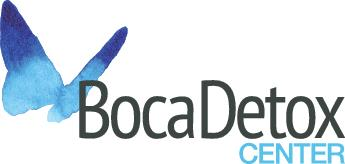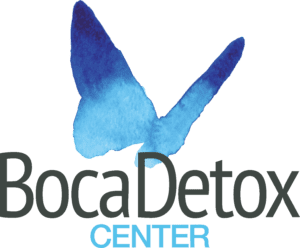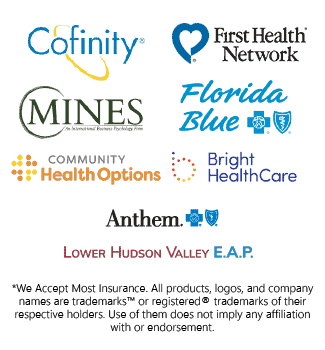Holistic addiction treatment is intended to address the well-being of the whole person, including their physical, psychological, and spiritual health. The approach is based on the idea that addiction affects all areas of an individual’s life and, as a result, treatment must encompass each of these areas to be effective. Holistic programs may be offered in a variety of settings and typically involve a team of healthcare professionals, including doctors, therapists, addiction specialists, and alternative healthcare practitioners, who collaborate to provide comprehensive care customized to meet the individual’s needs and goals.
At Boca Detox, we provide medical detoxification services for individuals dependent on drugs or alcohol. Using medication and emotional support, we aim to make the withdrawal process as comfortable as possible. Our goal is to ensure your drug or alcohol detox is pain-free and that you receive thorough aftercare planning. Contact us today to learn more.
Healing the Mind & Body as a Whole
Healing the mind and body holistically is an approach to health and wellness that acknowledges the interconnection between physical, emotional, and mental health. In the context of substance use treatment, this involves addressing not just the addictive behavior but also the underlying physical and mental health issues that may be fueling the addiction. Moreover, addiction is often the result of complex interconnections between genetic, psychological, and environmental factors. Therefore, a comprehensive treatment program must address these issues and help the individual develop the skills and resources needed to sustain long-term recovery.
Examples of holistic treatments include cognitive-behavioral therapy, mindfulness meditation, nutritional counseling, yoga, art and music therapies, and many more. These approaches strive to treat all of an individual’s emotional and physical symptoms as well as foster self-awareness and inner healing. Integrating alternative therapies, also known as complementary or holistic therapies, into substance use and addiction treatment can be an effective way to support the whole person in their recovery.
Nutrition, Exercise & Their Role in Holistic Addiction Recovery
Nutrition and exercise play a vital role in addiction recovery. A healthy diet and regular physical activity can help support overall health and well-being, reduce stress and anxiety, and improve mood and energy levels. Due to addiction, individuals may have neglected their physical health and nutrition while actively using drugs or alcohol. As a result, they may be malnourished, dehydrated, or have weakened immune systems. Integrating proper nutrition and exercise into their recovery plan can help address these issues and promote overall physical and mental health.
A focus on education and implementing good nutrition and diet can support holistic addiction recovery by addressing nutritional deficits, improving mood, and reducing depression, anxiety, and drug cravings. (1) Exercise releases endorphins and can also improve mood, reduce stress, promote sleep, and increase energy.
How Meditation & Mindfulness Can Aid in Finding Inner Peace
Meditation and mindfulness practices can help individuals find inner peace by developing greater self-awareness, acceptance, and calmness. Inner peace is considered to be a state of mental and emotional well-being characterized by a sense of calm and harmony. Meditation is a practice that involves focusing the mind on a particular object, thought, or activity to promote relaxation and mental clarity.
Mindfulness, on the other hand, is the practice of being present and fully engaged in the present moment without judgment or distraction. (2) Through regular practice, meditation and mindfulness can help individuals cultivate inner peace by reducing stress, increasing self-awareness, improving emotional regulation, and enhancing focus and mental clarity. By achieving inner peace through these holistic approaches, individuals can develop greater resilience, cope more effectively with stress and challenging emotions, and learn how to lead more fulfilling lives.
The Effectiveness of Art & Music Therapies in Addiction Recovery
Art and music therapies have been shown to be a creative outlet for self-expression, reduce anxiety and depression, and promote relaxation. These therapies can enhance the overall healing process, help individuals develop new coping skills, and promote self-awareness and personal growth. They can also improve communication skills, enhance cognitive functioning, and increase overall feelings of well-being.
These therapies have been found to be particularly effective in helping individuals with mental health conditions such as PTSD, bipolar disorder, and schizophrenia. They’ve also been used to aid in recovery from substance use and addiction, as they provide a creative outlet for individuals to express their feelings and emotions and cope with stressors in a healthy way.
Healing Through Nature Utilizing Outdoor Activities
Participation in outdoor activities can be an effective approach to addiction recovery as it allows individuals to develop a connection with nature, which can promote feelings of peace and relaxation. (3) Additionally, engaging in outdoor physical activities can help individuals establish a healthy routine, improve overall health, and boost self-esteem. Examples of outdoor activities that can be helpful for recovery include hiking, camping, fishing, and gardening. These activities can also provide opportunities to socialize and foster supportive relationships with others.
Holistic Approaches to Relapse Prevention
Holistic approaches to relapse prevention involve various strategies that address the many underlying factors that contribute to addiction. Instead of only focusing on avoiding triggers or using willpower to resist temptation, these strategies are designed to support individuals in developing the skills needed to sustain long-lasting sobriety.
Examples of Holistic Approaches to Relapse Prevention Include:
- Mindfulness-Based Relapse Prevention—This approach involves using mindfulness meditation and cognitive-behavioral therapy techniques to help individuals identify and manage triggers, cravings, and negative emotions that can trigger a relapse.
- Exercise—Regular exercise and physical activity can help reduce stress and anxiety, improve mood, and promote physical health.
- Nutrition and Dietary Supplements—The use of certain dietary supplements can help address nutrient deficiencies and increase physical and mental well-being.
- Emotional Regulation and Coping Skills—Holistic addiction treatment may include therapies such as Dialectical Behavioral Therapy (DBT) or Emotional Freedom Techniques (EFT), which aim to help individuals develop effective coping strategies to regulate thoughts and emotions more effectively. (4)(5)
Community Support—Developing a sense of purpose and connection through community support can be an integral part of relapse prevention and mental and physical well-being.
Focusing on Healing Trauma & Its Connection to Recovery
Healing trauma is a crucial component of addiction recovery, as many people turn to substance misuse as a coping mechanism to numb emotions or repress past traumatic experiences. By addressing and learning how to deal with trauma, individuals can better identify their triggers and develop healthier coping strategies to maintain lasting recovery. By working with a healthcare provider or addiction specialist who has expertise in trauma-informed care, individuals can begin to process and heal from past experiences. (6)
Finding Meaning, Connection, & Purpose Through Spirituality in Holistic Addiction Treatment
Spirituality can promote a sense of purpose for individuals in recovery, helping them to find meaning in their experiences, strengthen their resilience, and foster a connection to something greater than themselves. Integrating spiritual practices, such as meditation and prayer, into holistic addiction treatment can support individuals in achieving long-term healing, growth, and inner peace.
We Are Here For You
Let Us Help You Heal
Our detoxification experience is second to none.
Learn how we can help by speaking with one of our Treatment Advisors today.
Contact Boca Detox Today
Reach out to Boca Detox today to learn more about our evidence-based detox program and receive a free, no-obligation health insurance benefits check. We are committed to helping individuals get started on the road to recovery and ensuring they feel safe and supported throughout the detox process.

Reviewed for accuracy by:
Susan Shirley
LMHC
Serving as the Inpatient Clinical Director at Immersion Recovery Center, Susan will work directly with staff members, clients, and family members to ensure the clinical program remains as effective and individualized as possible. Susan is no stranger to the fields of behavioral health and addiction. She has over 25 years of experience, working in an inpatient setting, an outpatient setting, acute stabilization and nearly all other settings in the realm of addiction recovery.






















